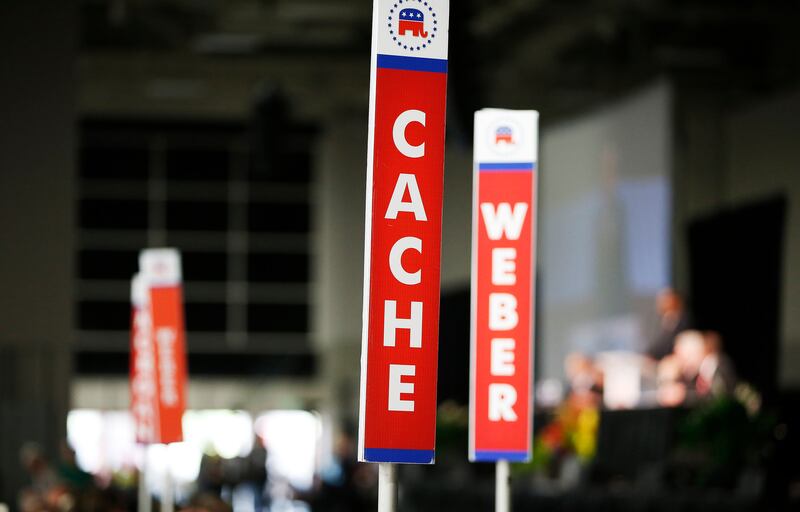It may have started in 2000, when incumbent Gov. Mike Leavitt was booed by delegates to his own state Republican Party convention. They forced him into a primary election he ended up winning handily. Later, he became the secretary of health and human services in the George W. Bush administration.
Regardless of its origin, the trend continued in 2010, when delegates booed incumbent Sen. Bob Bennett because of votes he cast in response to the financial crisis of 2008. Then, last year, delegates at the Maverik Center made national news by booing Sen. Mitt Romney, who was the party’s presidential nominee in 2012.
Democrats, who hold considerably less clout in Utah politics, have their own growing rifts. Prominent party members such as former Rep. Ben McAdams and current Salt Lake County Mayor Jenny Wilson face intense criticism for endorsing independent candidate Evan McMullin for U.S. Senate, rather than Democrat Kael Weston.
As always, such actions say more about the perpetrators than the victims.
Saturday’s state political conventions will be litmus tests for both parties. Are Utah’s political leaders capable of listening to and discussing important matters civilly, the way we assume many of them learned in their high school civics classes? Or are they intent on demonizing, shouting down and demanding 100% fealty to their own notions of political truth?
Put another way, is Utah still a cut above, or does it simply follow trends set by others, even if they are destructive to the culture?
The “Utah way,” which has been touted as the state’s unique ability to draw opposing interests together to hammer out difficult compromises, has been fraying lately. It worked wonderfully when the subject was immigration reform. It reached eye-popping proportions when a deal was hammered out to protect religious liberties and the rights of LGTBQ+ people. But it tattered badly last month as Republicans in the Legislature passed a one-sided bill barring transgender athletes from high school competition, preferring to mimic what other states had done rather than to forge another unique Utah solution.
On Monday, the Deseret News published an op-ed by former state Sen. Howard Stephenson, a longtime Republican leader and taxpayer advocate. He, too, urged civility at Saturday’s convention, and he added this observation: “Ironically, the delegates who are most upset by today’s ‘cancel culture’ have attempted to cancel the reports from duly elected representatives they don’t feel pass the delegates’ ideological purity test.”
We agree. At its core, American political discourse must be based on mutual respect in order to survive.
It could be defined as, “I wholly disagree with what you say and will contend to the death for your right to say it.” While the origin of this statement is in doubt — having been variously ascribed to Voltaire and other French thinkers — its sentiment fits perfectly within the framework of a nation that inscribed freedom of speech in its Bill of Rights.
Delegates of both party conventions have the right, and the duty, to vote their conscience when it comes to choosing candidates. But they have the obligation, for the good of their party and the nation they serve, to treat those with whom they disagree with civility and respect.
That wouldn’t diminish their own beliefs a bit, but it would elevate their character and reputation considerably.

